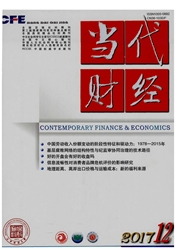

 中文摘要:
中文摘要:
混合所有制改革与传统产业产能严重过剩是当前的经济热点问题。通过构建由混合所有制国有企业及私有企业组成的混合寡占竞争模型,研究部分管理授权下的国有股最优比例及产能过剩问题,得出结论:产量与经营者效用的关联系数与国有股比例,私有企业经营者对利润的敏感度和产量激励正相关;混合所有制国有企业存在最优的国有股比例,在国有股比例最优的情况下,存在产能过剩;国有股最优比例是一个动态变量,受多种因素的影响;国有股比例与产能过剩程度负相关,国有产权不是导致企业产能过剩的根源,完全的私有化无法彻底解决产能过剩。对此,需要稳步推进产能过剩行业混合所有制改革,充分发挥市场的决定性作用,加强对企业经营者的激励与约束。
 英文摘要:
英文摘要:
Both the mixed ownership reform and the excess capacity of the traditional industries are the current economic hot issues. This paper constructs a mixed oligopoly competition model composed of state-owned enterprises with mixed ownership and private enterprises to study the optimal proportion of state-owned shares under partial managerial delegation and the problem of excess capacity. The conclusions are that the correlation coefficient between quantity and operator's utility is positively correlated to the proportion of state-owned enterprises, the sensitivity of the private business operators to profits is positively correlated to production incentives; there exists optimal proportion of state-owned shares in the state-owned enterprises with mixed ownership, under the optimal proportion of state-owned shares, there exists excess capacity; the optimal proportion of state-owned shares is a dynamic variable, which is influenced by many factors; the proportion of state-owned shares is negatively correlated to the degree of excess capacity, the state ownership is not the root of excess capacity, the excess capacity cannot be solved by full privatization. To this issue, we should steadily push forward the mixed ownership reform of the excess capacity industries, give full play to the decisive role of the market, and strengthen the incentives and restraints of the enterprise operators.
 同期刊论文项目
同期刊论文项目
 同项目期刊论文
同项目期刊论文
 期刊信息
期刊信息
